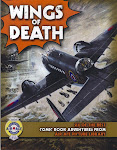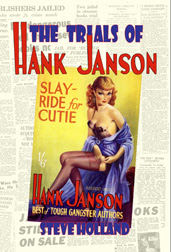 Born in Shepherd's Bush in 1879, Ruth Alexander was the daughter of Henry John Alexander (a commercial clerk) and his wife Katherine Mary (nee Gillman). Ruth had two older siblings, Russell (b. 1877, later a journalist), Muriel Florence M. (b. 1878) and three younger, Philip (b. c.1881), Olive (b. 1885), Frances Regina (b. 1887) and Hubert Erasmus (b. c.1891).
Born in Shepherd's Bush in 1879, Ruth Alexander was the daughter of Henry John Alexander (a commercial clerk) and his wife Katherine Mary (nee Gillman). Ruth had two older siblings, Russell (b. 1877, later a journalist), Muriel Florence M. (b. 1878) and three younger, Philip (b. c.1881), Olive (b. 1885), Frances Regina (b. 1887) and Hubert Erasmus (b. c.1891).The family must have been reasonably well off as, in 1881, they employed a general servant at their home in Hammersmith and Ruth was educated privately. By 1891, the family were living in Lambeth and father Henry was employed as a manager and traveller for a firm of manufacturers; in 1901 his occupation is listed as commercial traveller in the metal trade and the family were living in Wandsworth.
Ruth Alexander worked as a shorthand typist at a publishers before marrying Alfred Rogers in Lambeth in 1903; her husband died after only a few years of marriage.
She travelled extensively in Europe and South America and, in 1912, travelled to South America for a second time where she taught at a girl's school in the Argentine. She then worked among the South American Indians in Patagonia before returning to England in 1916.
Ruth Alexander was the editor of the Devizes and Wiltshire Advertiser (1916-20) before joining the Hughes Massie literary agency in London where she worked as a manager; she later became a publisher's agent on her own account, eventually working in the business for eighteen years. Her work allowed her to continue her travels, to South Africa and Canada, and a trip to Yugoslavia resulted in a general travel book about that country, which was to become one of her best known works.
Through her contacts with publishers, she wrote some of the earliest popular novelisations of plays and films, including such classics as Arnold Ridley's The Ghost Train and Clifford Grey’s Rome Express, as well as a completion of Dickens' The Mystery of Edwin Drood based on a screenplay. She was a contributor to the Daily Sketch, News Chronicle, Answers and many women’s magazines.
During the Second World War, she lived in Aldbourne in Wiltshire, where she began writing romance novels for Hurst & Blackett which she continued to pen until 1951. Her 1947 novel What Thing is Fairest was something of a best-seller, selling 12,000 copies.
In 1946, Ruth Rogers moved to Worthing, Sussex, where she was to live until the end of her life, at 29 Warwick Road, where she ran a boarding house, and, from around 1952, at 19 Farncombe Road where she lived in semi-retirement.
She was a member of the P.E.N. and the West Sussex Writers Club and in the 1948-49 Author's and Writer's Who's Who listed her hobbies as gardening, embroidery and restoring old cottages.
She died at a Worthing nursing home on Monday, August 18, 1958, aged 78. She was survived by three sisters and two brothers. Her funeral took place two days later at Downs Crematorium in Brighton.
Novels as Ruth Alexander
Thirst. London, Geoffrey Bles, 1925; as Passion Confessed – Thirst, London, Readers Library Publishing Co., 1934.
The Human Element. A romance. London, Geoffrey Bles, 1926.
The First Year (novelisation of the play by Frank Craven). London, Readers Library Publishing Co., 1927.
The Ghost Train (novelisation of the play by Arnold Ridley). London, Arrowsmith, 1927.
The Wrecker (novelisation of the play by Arnold Ridley & Bernard Merivale). London, Selwyn & Blount, 1928.
Blackmail (novelisation of the play by Charles Bennett). London, Readers Library Publishing Co., 1929.
Sorry You've Been Troubled (novelisation of the play by Walter Hackett). London, Readers Library Publishing Co., 1930.
Rome Express (novelisation of the film based on the play by Clifford Grey). London, Readers Library Publishing Co., 1932.
Morning Glory. London, Philip Allan, 1934.
The Mystery of Edwin Drood, by Charles Dickens, completed by Ruth Alexander (based on the screenplay). London, Queensway Press, 1935.
The Man Who Knew Too Much (novelisation of the screenplay by Charles Bennett). London, Arrowsmith, 1936.
Give Me Your Heart. London, Hurst & Blackett, 1944.
Engagement with a Star. London, Hurst & Blackett, 1945.
What Thing is Fairest. London, Hurst & Blackett, 1947.
Beyond the Desert. London, Hurst & Blackett, 1948.
The Heart’s Journey. London, Hurst & Blackett, 1950.
Comes in the Light. London, Hurst & Blackett, 1951.
Non-fiction as Ruth Alexander
Stones, Hilltops and the Sea. Some Jugo-Slavian impressions. London, Alston Rivers, 1929.
(* With thanks to Jamie Sturgeon who did all the hard work digging through electoral role records and copies of the Worthing Gazette for an obituary -- successfully, I might add.)























































I'm trying to look up Ruth Alexander Hill, who wrote in 1961, "The Obsession of Victoria Gracen". What gives? Gracen...i've heard too much about Gracen-male and no info on his except a sherriff gone bad...(fictious?)
ReplyDeleteAccording to various library indexes, The Obsession of Victoria Gracen was written by American authoress Grace Livingston Hill (later Lutz). No connection with British author Ruth Alexander.
ReplyDeleteGreat work! 'Tis a pity when past masters languish in latter-day obscurity and a privilege to be able to at least carve out a small corner of the internet for them.
ReplyDeleteI’ve written a series of articles on Hitchcock and those in his milieu incorporating all of Ruth Alexander’s film novelisations, and linked to this page where relevant. Search: "Alfred Hitchcock Collectors’ Guide." It’s worth mentioning she’s not to be confused with her contemporary Ruth Alexander Nichols, an American childrens’ author.